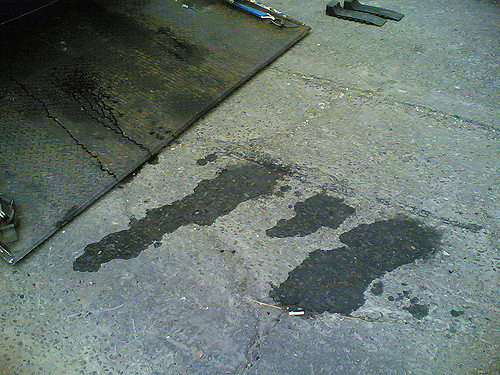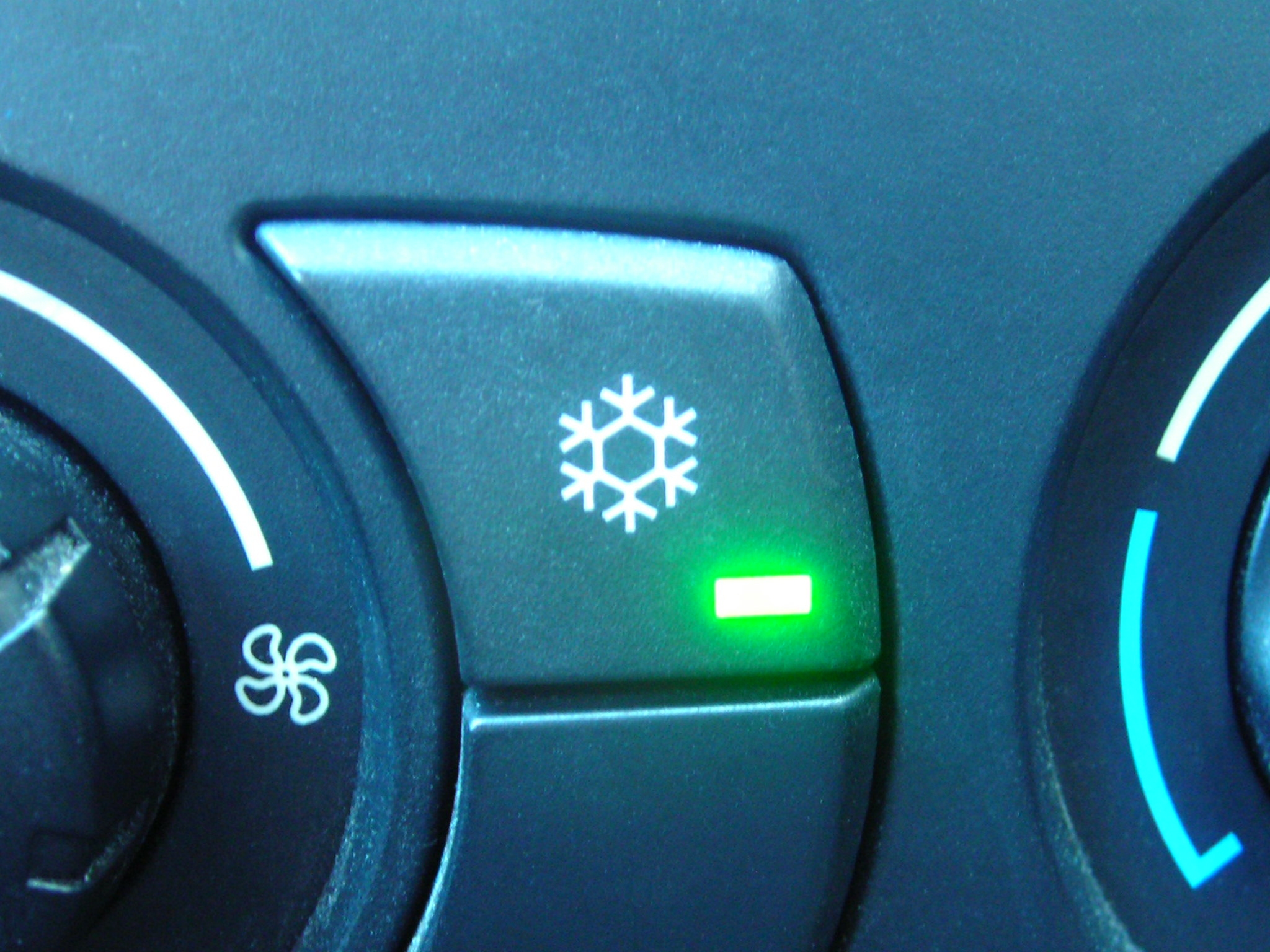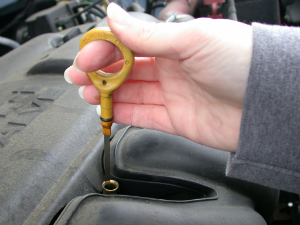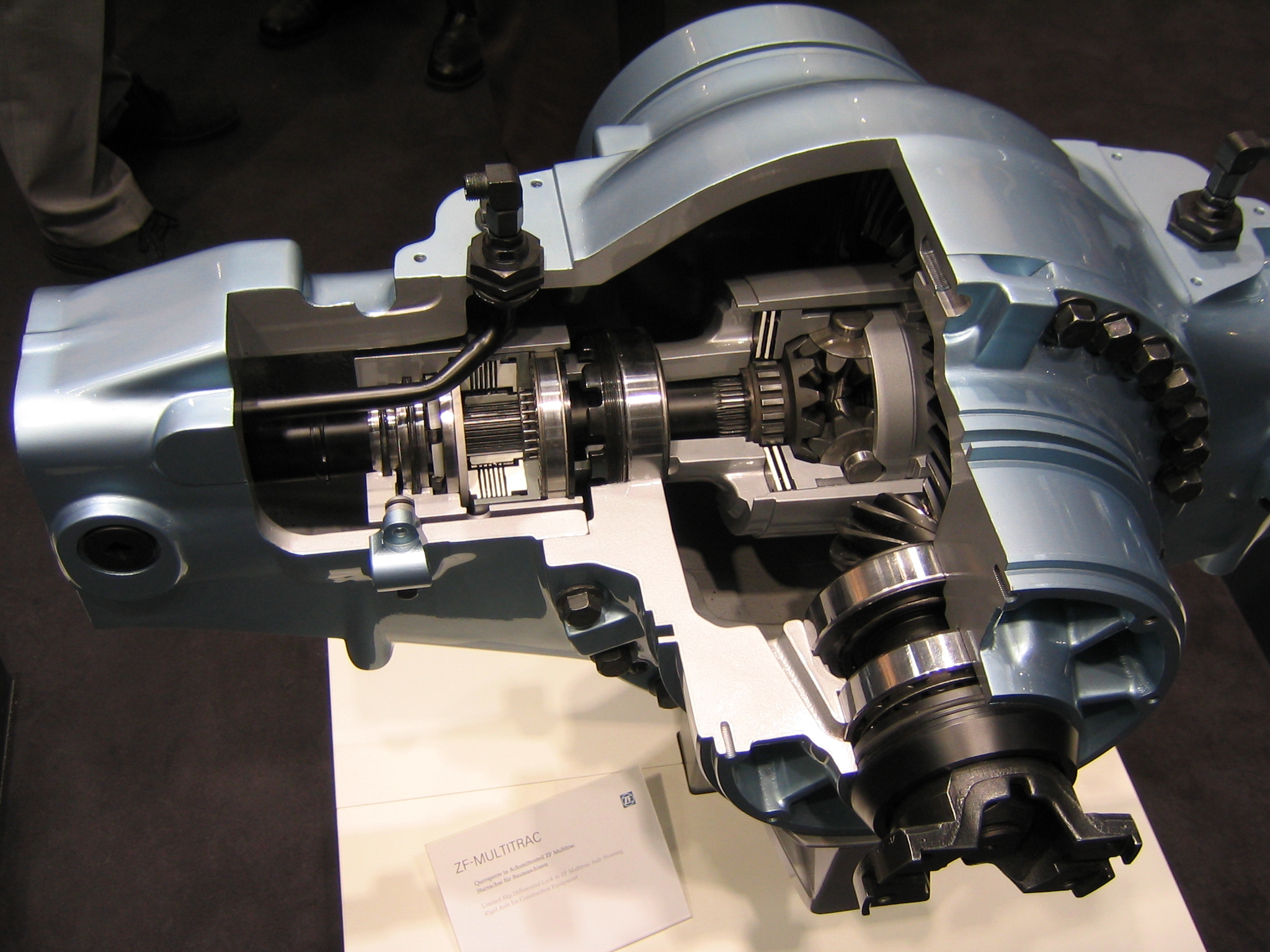Posted on 7/14/2016

You go out to your car, start it up, pull out of your parking space and see a puddle of...something...where you were parked a moment ago. This is never a good feeling. What could it be? Fortunately, some automotive fluids are dyed different colors to make this a little easier to narrow down. Does it appear to be water? Were you recently running your A/C? Chances are that's just condensation from the A/C system, which drips out through a rubber tube and is perfectly normal. No worries there. For years, antifreeze was dyed a bright green to make it easy to identify. Today, other antifreeze formulations can be colored pink or orange, but it's still not hard to figure out -- antifreeze has a sweet-ish, unmistakable smell due to its ethylene glycol content.Gasoline is a pale yellowish or orange color, and also has a distinct smell that you'll recognize right away. Gasoline evaporates quickly and may feel cool on your finger if you dip it into the puddle. It's also, of course ... read more
Posted on 6/30/2016

Believe it or not, the A/C system in your vehicle is fairly simple in principle and design. Like your refrigerator, it operates on a cycle of compression and expansion of a gas, known as refrigerant. The compressor turns the gas into a liquid, and as the gas evaporates it provides cooling. Like your refrigerator, its main components are: Compressor Condenser Receiver/dryer Thermostatic expansion valve Evaporator Refrigerant Blower The good news is most automotive A/C systems have become very robust and reliable compared to cars from a generation ago. Most of the time, poor performance is due to low refrigerant levels due to leaks in the system around the O-rings, gaskets, seals, and lines (which can all dry out and shrink). Low refrigerant can mean other problems though. Since refrigerant contains oil which lubricates the compressor, low levels of refrigerant can mean an overheated compressor sending tiny shards of metal through the rest of the system to wreak havoc ... read more
Posted on 5/26/2016

At one time, there were only a couple of choices for motor oil. Today, that is no longer the case, and hasn't been for quite some time. Here's a quick breakdown of what you need to consider when it's time for an oil change: Viscosity: Viscosity is how thick your oil is, and how it retains its pour properties at various temperatures. In this respect, synthetic oil is far superior. Conventional oils will thicken in cold weather and thin out when very hot, while the viscosity of synthetic is much more uniform. Check your owner's manual -- many newer models require a thinner, lower-viscosity oil, which also helps the engine run more efficiently. Viscosity is expressed as a numerical value -- the lower the number, the thinner the oil. Many are designed to work at various viscosities, i.e. a rating like 5W-30. Premium Conventional Oil: For most vehicles, premium conventional oil is just fine. Conventional oil does a good job of protecting engine parts from wear and overheating, and is availa ... read more
Posted on 3/17/2016

Often, drivers are mystified by how their cars actually work. It’s to be expected. Even an older car is a complex machine with many sub-assemblies that all work together to move it down the road.As a result, drivers tend to be a little intimidated by auto repair and often tend to not inform themselves by asking the necessary questions of a tech or a garage. Too often, that ends up being a big mistake. Here are some examples of the kinds of things you really should know before any auto repair work starts: Does your shop work on any kind of vehicle? Of course, most shops can service a product from GM, Ford, Chrysler, Nissan, Toyota and the other leading makes. Some makes, however, require a lot more training and experience, or even factory certifications. Vehicles from Mercedes-Benz, Volvo, BMW and certain other makes often require specialized tools and training; that’s why many towns have repair shops that are for specific makes of vehicles. What kind of equipment does your ... read more
Posted on 2/11/2016

Differential Service – Why Is It Important? Of all the various things on a vehicle that need regular service and maintenance, the differential is too often neglected. But what exactly is it, and what does it do? Visualize a rear-wheel-drive vehicle making a right-hand turn. As the car turns to the right, the left rear wheel will have to actually cover a longer distance and spin at a different speed than the right wheel. If the rear axle was delivering the same torque to both wheels, the left rear wheel would be binding and skittering as it made the turn. The differential is designed to allow the wheels to turn at different speeds around corners, eliminating that problem. The differential uses an oil thicker than motor oil, somewhere between an oil and a grease in terms of its weight. Like any other assembly, though, the oil in the differential will become contaminated over time and will start to break down due to heat. Most differentials need a fluid change at abou ... read more